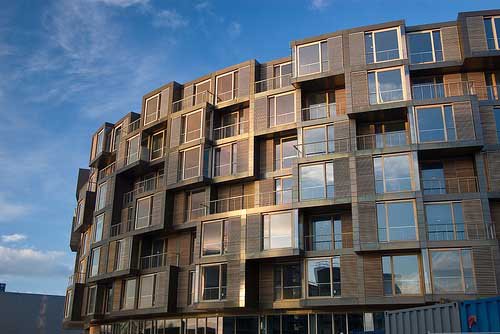
Proving their resilience, the so-called “alternative” sectors dominate the ranking of the most interesting product classes to invest in in 2020. Offices, shopping centers or hotels are not part of the “top 10” of this list.
This is one of the hallmarks of the study “Emerging Trends in Real Estate Europe 2022 – Road to Recovery”, prepared by PwC and the Urban Land Institute, known this week. This study is based on hundreds of questionnaires and interviews conducted with 844 experts in the real estate investment sector, including investors, fund managers, developers, lenders and consultants. It shows that real estate investors remain attentive and interested in the European market.
This list is led by energy infrastructure, life sciences, logistics, data centres, healthcare, senior/assisted residences, industrial/warehouses, affordable housing, self-storage and rental, closing the top 10. Flexible offices/coworking are in 17th place, followed by leisure in 18th and by headquarters in 19th. Hotels are in 22nd place, street retail in 25th and shopping centers in last, in 27th. Also noteworthy is the fact that, among the 27 segments analyzed, 9 are residential.
The study highlights that "the pandemic has reinforced the long-term trend for investors to look for resilient returns in sectors that benefit from demographic drivers, namely residential and life sciences." Some respondents give the example of institutional funds that are increasingly diversifying their portfolio, looking “increasingly into sectors generally defined as alternatives”.
From the end of March to the end of September this year, offices continued to be the main destination for investment in Europe, with 38% of business and 27% of the volume of invested capital (255 billion euros), according to RCA. But this is down from 49% in 2019. On the other hand, housing transactions rose from a share of 16% of businesses in 2019 to 24% and industrial from 13% to 21%.
Lack of product seems to be the main obstacle to investing in these asset classes, namely life sciences, data centers or energy infrastructure. This “rarity” of opportunities is pushing prices higher as this type of investment gains popularity.
The study also leaves the note that "these sectors are still far from being universally accepted among pension funds and insurance companies, which for years were comfortable buying offices, retail and industrial, and little else".

